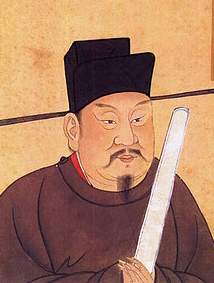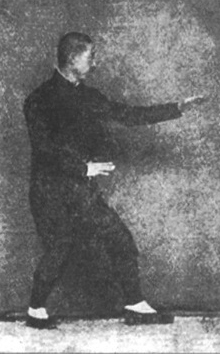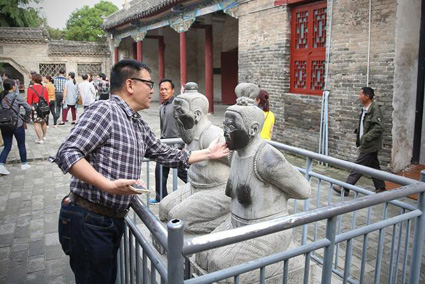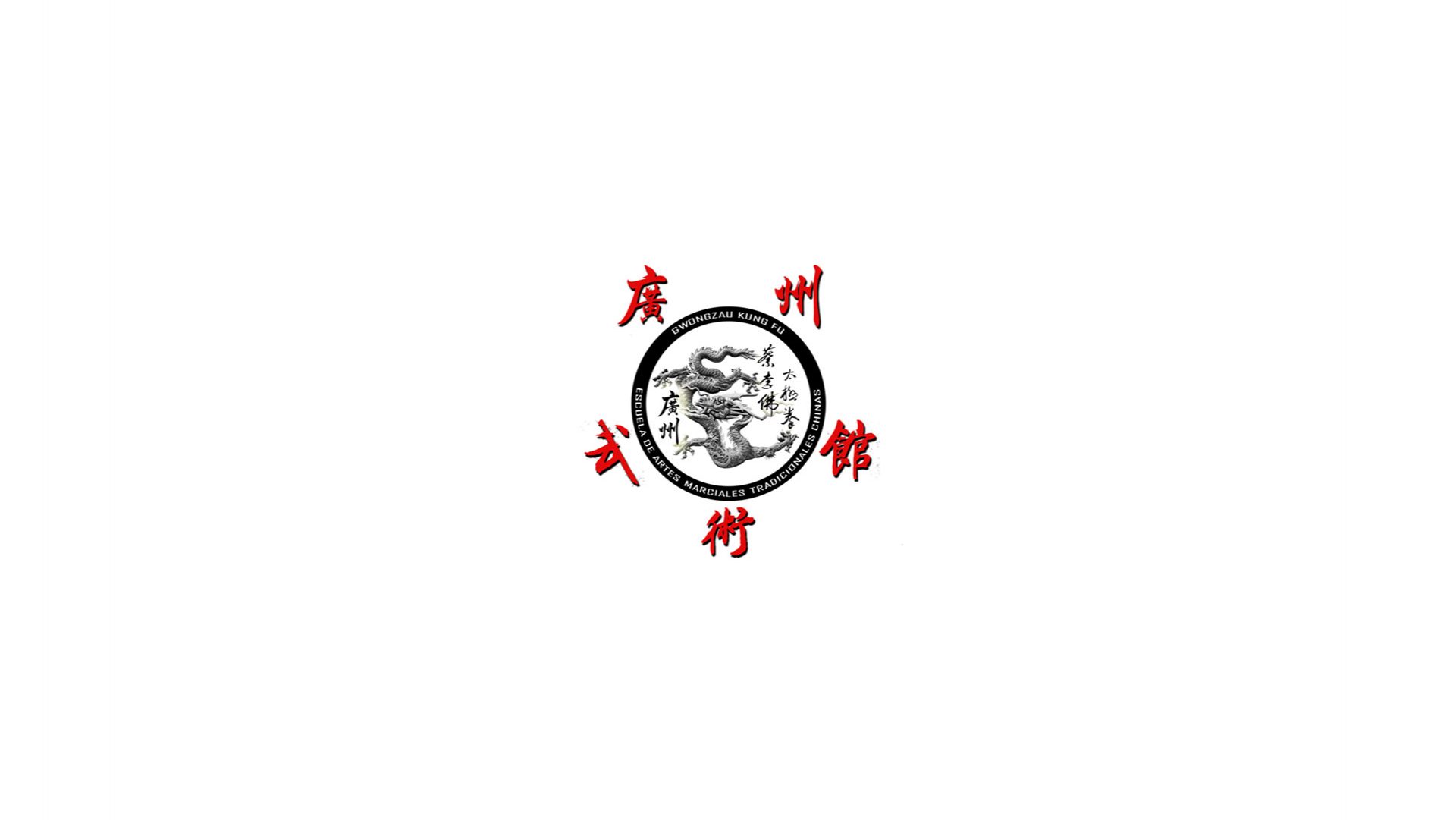General Yuè Fēi 岳飛 (1103–1142) was a famous Chinese national hero of the Sòng dynasty 宋朝, who is credited with creating different styles of martial arts, such as the Eagle's Claw (鷹爪派 Yīng Zhǎo Pài) or Xìng Yì Quán 形意拳, among others.

Portrait of General Yuè Fēi
Despite being a historical character, we have very few reliable written references to Yuè Fēi. The official documents of the Sòng dynasty concerning him were forged or destroyed by his enemies in the imperial court, and subsequently corrected by historians after his time. Apart from these documents, there are two biographies of Yuè Fēi written by a grandson of his who never met him, and which are full of fabulous accounts. However, none of these records state that Yuè Fēi developed any martial arts system of his own.

Xìng Yì Quán
Xìng Yì Quán 形意拳 (Boxing of Form and Intention) is a martial art among those regarded as "internal styles" (Nèi Jiā Quán 內家拳). The legend attributes its creation to Yuè Fēi, who would leave a written manual with the foundations of the system. After his death, this manual would remain lost for several centuries until an 18th-century wrestler discovered it and learned the system based on it. More likely, however, this is one of the many cases in which, to give credibility to a style, its creation is attributed to a legendary character.
The biographies written by his grandson Yuè Kē 岳珂 portrait Yuè Fēi as a virtuous and loyal man, educated in the Confucian way, and with a legendary skill in archery. Son of poor farmers, his family could not afford to pay for the young man's martial instruction, so his grandfather hired a wrestler named Chén Guǎng 陳廣 to instruct him in the handling of the spear, which Yuè Fēi allegedly dominated at the age of thirteen. Later, another warrior named Zhōu Tóng 周同 continued his training by teaching him the art of archery.
Enlisted as a soldier in 1122, Yuè Fēi served the Sòng dynasty in the war against the invasion of the northern Jurchen (nǚzhēn 女真) tribes, which after the fall of the Sòng would establish the Jīn 金 dynasty. His troops were carefully selected and trained. Yuè Fēi was a model of discipline for his own men, and in the war he never allowed the saquers to the civilian population, which led him to earn the absolute loyalty of his troops and the affection of the people. His good military exercise led to his appointment in 1133 as General of the largest army of the Sòng in the Yangtze (長江 Cháng Jiāng).
In the imperial court, Yuè Fēi was in favour of the total struggle against the Jurchen, foreign invaders, and opposed to making any kind of concession for peace. This earned him the enmity of an influential officer named Qín Guì 秦檜.
The Jurchen had invaded China in 1126, taking Kāifēng 開封, the former capital of the Sòng dynasty, and capturing emperor Qīnzōng 欽宗. This marked the end of the Northern Sòng dynasty and the establishment of the Southern Sòng dynasty, with Gāozōng 高宗 as the new emperor. In 1141, Yuè Fēi was in command of a major offensive that had managed to corner the Jurchen in Kāifēng. However, the intervention of his political enemies in the court convinced Emperor Gāozōng that, if the Jurchen lost Kāifēng, they could release Qīnzōng and then he would lose his legitimacy. On the advice of these officials, Gāozōng called Yuè Fēi back to the new capital, where he was imprisoned and subsequently executed on false charges (some versions claim that he was poisoned in prison), in a conspiracy hatched by his rival Qín Guì and his wife.
The Eastern Window Plot
It is said that while Yuè Fēi was in prison he was subjected to torture for two months, but never admitted to committing treason. Qín Guì was very concerned that he would soon be forced to release the General. He and his wife Wáng Shì 王氏 were sitting by the "Eastern Window" when a maid walked in with oranges, and lady Wáng came up with a plan to get rid of Yuè Fēi. They put an execution warrant hidden in the skin of an orange, which they sent to the judge who presided over the case. In this way, Yuè Fēi was executed before the emperor could release him.
In 1162, emperor Xiàozōng 孝宗 posthumously granted pardon to Yuè Fēi and reinstated his honours. Thus, Yuè Fēi is regarded by the Chinese nation as a hero, a patriot who fought to defend the country against foreign invaders. Statues of Qín Guì and his wife, as well as other officers who participated in the conjure, were erected in front of Yuè Fēi's tomb in the temple of Yuè Wáng 岳王廟, in Hángzhōu 杭州, kneeling in regret. Visitors have spat and urinated on these statues for centuries, and these have been severely damaged and restored on various occasions.

A visitor slaps the statues of Qín Guì and lady Wáng in the mausoleum of Yuè Fēi.
